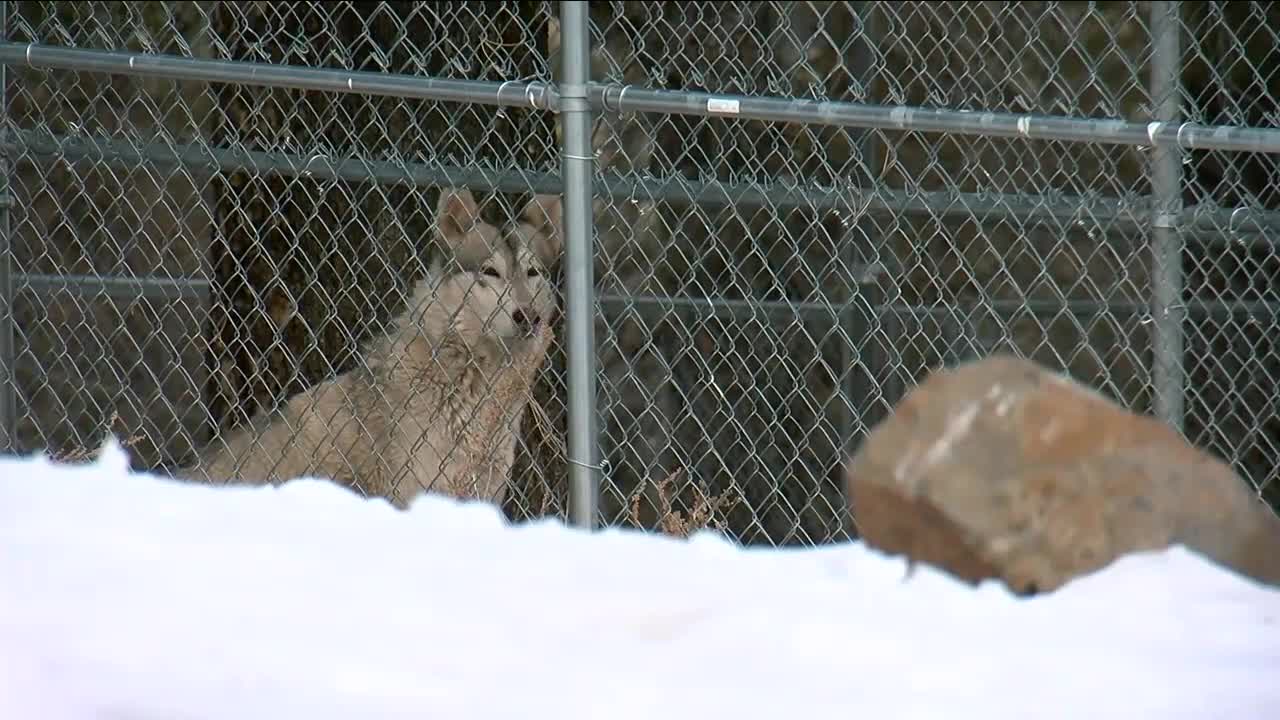DENVER — Colorado Park and Wildlife (CPW) hosted a three-hour meeting Wednesday to discuss the reintroduction of gray wolves in the state.
The hearing is one of a series of meetings on the topic happening between now and the end of 2023. Voters approved a reintroduction plan on the November ballot.
Proposition 114 called for the apex predator to be brought back to the western part of the state. Voters in the Front Range overwhelmingly approved the idea, while areas on the Western slope, where the wolves would be reintroduced, largely voted down the idea.
In the end, the proposition passed by a narrow margin. Now, CPW is working on a stakeholder process to try to figure out how to implement the will of the voters.
Meanwhile, Colorado lawmakers have introduced three bills dealing with the reintroduction of the species.
The first bill would clarify the funding for the introduction and management of the wolves would come from the state’s general fund budget and not from CPW. The state agency is cash-funded, earning its revenue from hunting and fishing licenses, among other things.
“There is discussion of, can you use hunting and fishing license monies to manage a species that you can’t hunt?" said Sen. Kerry Donovan, a co-sponsor of the bill. "By pointing general fund support for this effort, we can alleviate that concern.”
The money will be used to help CPW gain public input, facilitate meetings, run education campaigns, track and manage the wolves and reimburse ranchers whose livestock are killed by the wolves and more.
Donovan estimates it will cost the state roughly $1 million per year in the first few years to run the program.
“If you’re for wolves being on the ground, then we need to make sure we’re fully funding that effort and make sure that that’s done scientifically and well planned out. If you are against wolves being on the ground, then we need to make sure we have the money to compensate for any damages or impacts that they have on the communities,” she said.
Donovan, who is a rancher herself, said one of her primary goals is to make sure ranchers’ voices are being heard as the state moves forward with the implementation plan.
Meanwhile, a second bill that was introduced by a group of Republican lawmakers would severely limit where the gray wolves could be reintroduced.
“It restricts where parks and wildlife can release wolves to only counties who voted yes, or if counties voted no, those counties would have to have a special election first,” said Rep. Matt Soper, a bill co-sponsor.
The vote for Proposition 114 was a narrow on — more than three million votes cast on it, but the measure won by only 57,000. Areas in the Front Range largely supported the reintroduction, while areas to the east and west mostly voted against it.
The second part of the bill also prohibits the wolves form being released in a habitat where there is a rare and endangered species as defined by the Colorado Endangered Species Act.
This would prevent the wolves from being released in Gunnison, for instance, where sage grouse lands are.
“It further restricts where wolves are released to areas that are not where a herd is, where the state has spent significant sportsman dollars to build up those herds,” Soper said.
This portion of the bill would prohibit the wolves from being reintroduced in Grand Mesa, where sportsmen money was used to rebuild moose populations.
Soper says that would leave the reintroduction to Summit, Pitkin and La Plata counties. He understands the wolves will eventually roam to other areas, but he believes the reintroduction should be limited at first.
“I’m just saying, at first, let’s have that be the location sites because if those citizens really felt so passionately about having wolves, then they should be the locations where the wolves are first released, and then the wolves will naturally migrate elsewhere,” he said.
Proposition 114 did put some limits on where the gray wolves could be reintroduced, saying they should be taken to their former habitat west of the Continental Divide.
Both bills face their first committee test Thursday. Soper’s bill, which does not have bipartisan support, will likely face a tough time in the legislature.
A third bill that has been introduced lays out the process for how CPW should gain public input in the process and continue those conversations even after the wolves are reintroduced. That bill has not yet been put on the calendar for a hearing.





